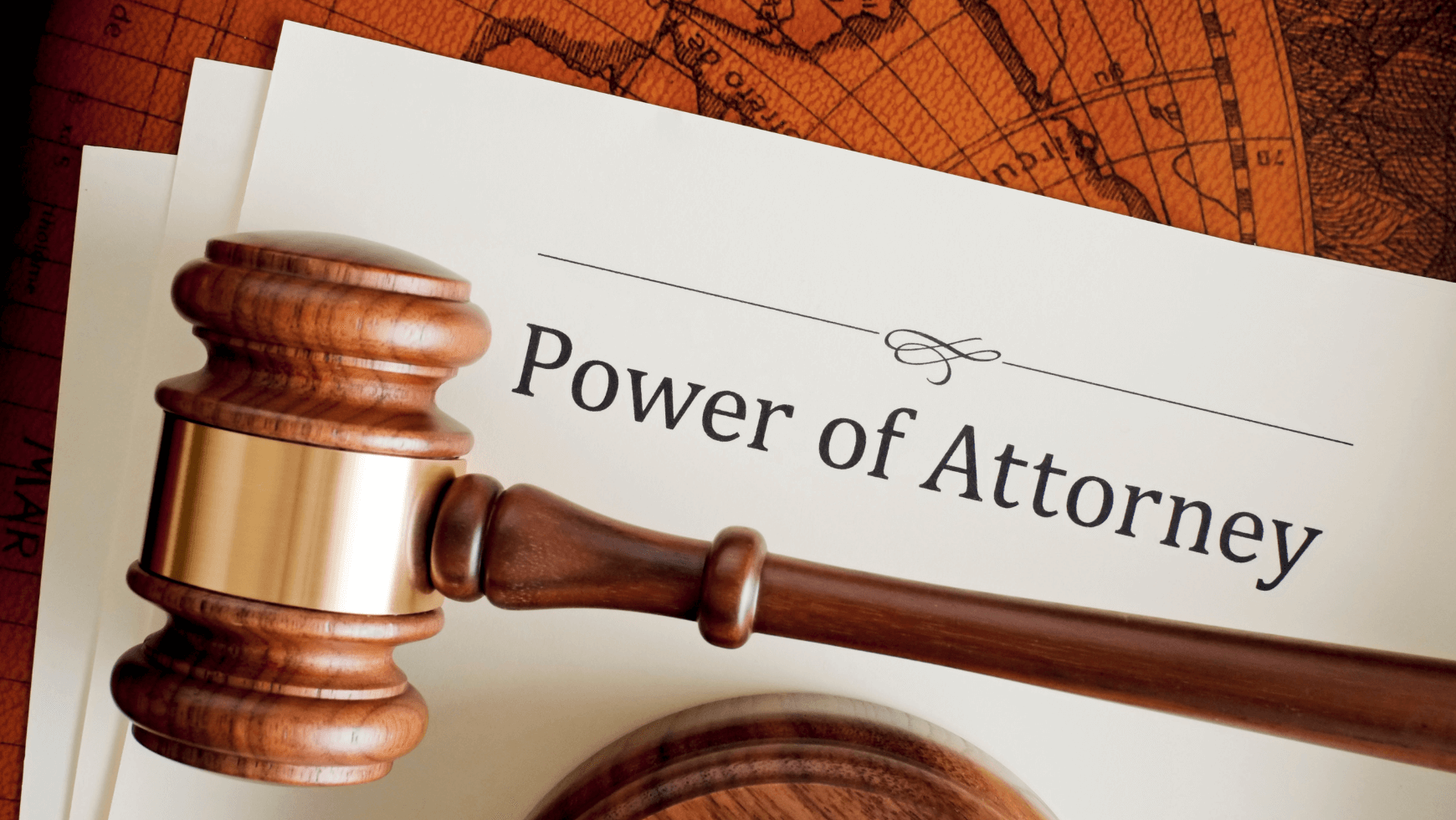Power of Attorney in Thailand. A Power of Attorney (POA) is a legal instrument that allows one person (the principal) to appoint another person (the agent or attorney-in-fact) to act on their behalf in legal, financial, or personal matters. In Thailand, POAs are governed by the Civil and Commercial Code (CCC) and specific regulations depending on the nature of the transaction (e.g., land transactions, court appearances).
POAs are critical for individuals and businesses seeking to delegate authority for specific acts, including property transactions, corporate management, litigation, and personal representation.
II. Legal Basis and Governing Law
A. Statutory Authority
-
Civil and Commercial Code (CCC), Book III, Title VI: Agency (Sections 797–828): Provides the general legal framework for POAs.
-
Land Code (Section 61): Sets out specific requirements for POAs used in land transactions.
-
Code of Civil Procedure (Sections 55–57): Governs POAs for legal representation in court.
-
Notarial Services Act B.E. 2535 (1992): Provides for notarization of POAs by qualified Thai lawyers with notarial authority.
B. Key Legal Principles
-
A POA is an agency agreement, granting the agent the legal authority to act on behalf of the principal.
-
It must be granted voluntarily, with full legal capacity of the principal.
-
The agent must act in the best interest of the principal and within the scope of authority specified in the POA.
III. Types of Power of Attorney in Thailand
POAs in Thailand are categorized based on their scope and purpose:
A. General Power of Attorney (GPOA)
-
Authorizes the agent to perform broad legal or financial acts on behalf of the principal.
-
Typically used for business management, asset management, or general representation.
-
The scope must be clearly defined to avoid misuse.
B. Special or Specific Power of Attorney (SPOA)
-
Grants the agent authority to perform specific actions only, such as:
-
Selling or purchasing property
-
Opening or managing a bank account
-
Executing a contract
-
Representing the principal in court
-
C. Durable Power of Attorney
-
Remains effective even if the principal becomes incapacitated.
-
Must explicitly state that it is “durable” to retain validity under such circumstances.
-
Common in estate planning and healthcare decisions.
D. Medical Power of Attorney
-
Authorizes the agent to make medical decisions on behalf of the principal.
-
Often combined with a living will to specify end-of-life decisions.
-
Must be clear in scope, including consent to surgery, life support, or other critical treatments.
E. Special POA for Land Transactions (Section 61, Land Code)
-
Must be in a standardized form issued by the Land Department.
-
Requires certified signatures of the principal, and in some cases, the agent.
-
Must be registered at the Land Office if used for property sale, transfer, lease, or mortgage.
IV. Formal Requirements
A. Writing Requirement
-
All POAs must be in writing, signed by the principal.
-
For specific transactions (land, litigation), the POA must be in official Thai language.
-
A foreign-language POA must be translated into Thai and certified.
B. Signatures and Notarization
-
Signatures of the principal must be witnessed or notarized depending on the type:
-
General POA: Two witnesses or notarization (for international use).
-
Land Transactions POA: Notarization by a Thai notary lawyer or Thai Embassy.
-
Court Representation POA: Notarization or signed in the presence of a court officer.
-
C. Specific Content Requirements
-
Principal’s name, nationality, and identification (passport or Thai ID).
-
Agent’s name, nationality, and identification.
-
Clear definition of the scope of authority granted.
-
Duration of the POA (if applicable).
-
Date of execution.
D. Special POA for Overseas Use
-
A POA executed abroad for use in Thailand must be:
-
Notarized by a Notary Public in the foreign country.
-
Authenticated by the Thai Embassy or Consulate.
-
V. Registration and Use of POA
A. POA for Land Transactions (Land Department Procedures)
-
The POA must be in the standard form issued by the Land Department (Tor Dor 21).
-
Both the principal and agent must present identification documents.
-
If executed abroad, the POA must be notarized and legalized by the Thai Embassy.
-
The Land Department may refuse to accept a POA that is too broadly worded or lacks specificity.
B. POA for Corporate Transactions
-
The agent may be authorized to:
-
Sign contracts on behalf of the company.
-
Attend shareholder meetings.
-
Represent the company in regulatory matters.
-
-
Must comply with the company’s Articles of Association and be authorized by a board resolution if necessary.
C. POA for Litigation (Court Procedures)
-
The agent (often a licensed Thai lawyer) must present the POA in the specified court form (Form Or Chor 1).
-
The court may require the principal’s presence for verification.
-
Limited to the specific case number and court jurisdiction.
VI. Scope of Authority and Limitations
-
The agent may only perform acts specifically authorized in the POA.
-
Any act outside the scope of the POA is invalid and non-binding on the principal.
-
The agent must exercise reasonable care and avoid conflicts of interest.
Prohibited Acts for Agents (Section 814 CCC)
-
An agent cannot act as the counterparty in a transaction on behalf of the principal unless expressly authorized.
-
An agent cannot make gifts of the principal’s assets unless specifically permitted.
VII. Revocation and Termination of POA
A. Methods of Revocation
-
By written notice from the principal to the agent.
-
By creating a new POA that expressly revokes the old one.
-
Automatically upon:
-
Death of the principal or agent.
-
Incapacity of the principal (unless it is a durable POA).
-
Completion of the authorized transaction.
-
B. Notification of Revocation
-
Revocation must be notified to third parties who may have relied on the POA.
-
For registered POAs (land transactions), the revocation must be recorded with the Land Department.
VIII. Legal Risks and Best Practices
A. Overly Broad POA
-
Granting an overly broad POA can lead to misuse or abuse.
-
The principal should carefully define the scope and duration.
B. Fraudulent Use
-
Agents using a POA for unauthorized transactions may be held liable for breach of trust (Section 820 CCC).
-
Criminal liability may arise for forgery or fraud.
C. Monitoring and Oversight
-
The principal should maintain copies of all transactions executed by the agent.
-
Regular review of the POA is recommended, especially for long-term arrangements.
D. Proper Authentication
-
For international use, ensure POAs are notarized, translated, and legalized as required.
IX. Practical Use Cases of POA in Thailand
-
Property Transactions: Selling, buying, or mortgaging land through an agent.
-
Business Management: Appointing a manager to run a company in the principal’s absence.
-
Court Representation: Allowing a lawyer to represent the principal in civil or criminal proceedings.
-
Financial Management: Authorizing a relative to manage a Thai bank account or investment.
X. Conclusion
The Power of Attorney in Thailand is a versatile legal tool that facilitates the delegation of authority, but it must be carefully structured and compliant with statutory requirements. Given the potential for misuse or fraud, principals are advised to:
-
Clearly define the scope of authority.
-
Regularly monitor the agent’s actions.
-
Use properly authenticated POAs for international use.
A properly drafted and registered POA can significantly simplify personal, financial, or business management—especially for foreign nationals with interests in Thailand.


